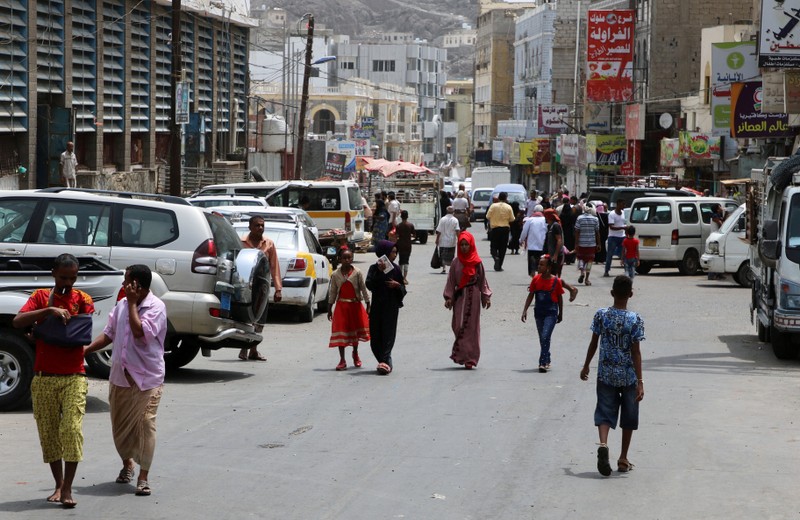
ADEN (Reuters) – The United Arab Emirates pulled some of its forces from Yemen’s southern port of Aden on Tuesday, officials and witnesses said, as a Saudi-led military coalition works to end a power struggle between the Yemeni government and separatists in the city.
Two officials told Reuters that an Emirati convoy boarded a military vessel at Buraiqa oil terminal near Aden refinery that had shipped out. Four employees at the refinery said they saw a large convoy of military vehicles and three buses carrying around 200 troops headed toward the terminal.
The UAE government media office and the coalition spokesman did not immediately respond to Reuters requests for comment.
Yemen’s Saudi-backed government and the separatist Southern Transitional Council (STC), which is supported by the UAE, are close to a deal that would end the Aden standoff and see Saudi forces take temporary control of the city, four sources familiar with the negotiations earlier told Reuters.
STC forces are part of the Sunni Muslim alliance that intervened in Yemen in March 2015 to restore the government of Abd-Rabbu Mansour Hadi after it was ousted from power in the capital, Sanaa, in late 2014 by the Iran-aligned Houthi group.
But the separatists, who seek self-rule in the south, turned on the government in August and seized its interim seat of Aden.
Saudi Arabia, leader of a coalition supported by the West, has hosted indirect talks for a month to end the crisis that opened a new front in the multi-faceted war and threatened to further fragment Yemen and complicate United Nations peace efforts. The war has killed tens of thousands and pushed millions to the brink of famine in Yemen.
Two Yemeni government officials had told Reuters that Riyadh has proposed including the STC, which wants a say in Yemen’s future, in Hadi’s government, and deploying Saudi troops in Aden to oversee formation of a neutral security force.
It was not immediately clear how many Emirati troops remain in Aden or whether Tuesday’s movement constituted a redeployment inside Yemen.
“A main road was completely closed as the Emirati convoy passed,” said one refinery employee who declined to be identified. “This is the first time we see such a large number of Emirati troops leave.”
The UAE, Riyadh’s main coalition partner, had in June already reduced its presence in Yemen, mostly from the western coast as Western pressure mounted to end the war and as rising tensions with Iran raised security fears in the Gulf.
Hadi’s government has demanded the UAE stop supporting STC forces, which Abu Dhabi armed and trained. The UAE, which distrusts an Islamist party allied to Hadi, has criticized his government as “ineffective”.
One of the sources familiar with the Saudi-sponsored talks said addressing Aden was required before the coalition responded to a Houthi offer to halt missile and drone attacks on Saudi cities if the alliance ended air strikes on Yemen.
The Houthis, who control Sanaa and most big urban centers, extended the truce offer last month after claiming responsibility for the Sept. 14 strikes on Saudi oil facilities. The United States and Saudi Arabia blamed those attacks on Iran, an allegation Tehran denies.
Reporting by Reuters team in Yemen; Writing by Ghaida Ghantous; editing by Grant McCool




